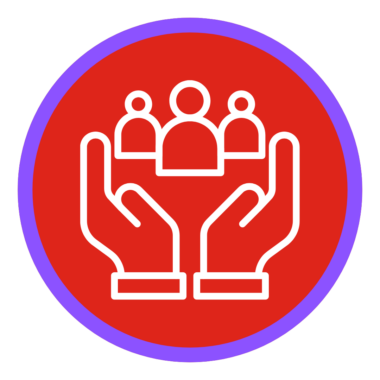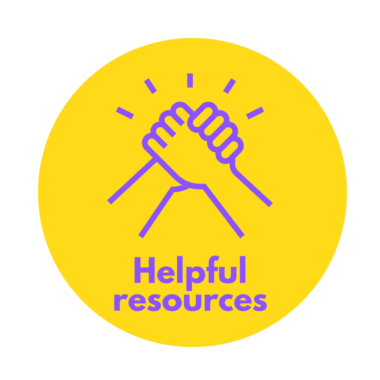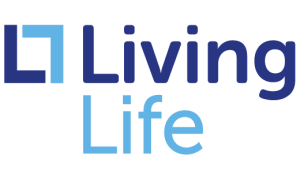Listen and Support: a mental health resource for Poverty Alliance members
We know that anyone can experience poor health, but mental health problems are not evenly distributed across the whole population. Poverty and mental health are intertwined: people in poverty are at higher risk of mental health problems, including depression and anxiety, and mental health problems can make it harder to escape poverty, for instance, by affecting a person's ability to work or continue in education.
Poverty disproportionately affects certain groups, including people from minority ethnic backgrounds, disabled people, young people and those in lone-parent families. This places some people at a higher risk of experiencing poor mental health. Addressing inequality is crucial for poverty reduction and to improve mental health outcomes.
The Mental Health Foundation and The Poverty Alliance developed this resource in response to the views and needs of staff working in the poverty sector. We believe in a focus on reducing poverty and improving mental health, and we are committed to working together towards change.
Navigating this resource
Each section of this resource corresponds to topic areas that members of the Poverty Alliance told us they would like more information on. We were also told that members not only wanted information, but also hints and tips on how to bring this knowledge into every day practice. The links below will take you to different areas of interest.
Supporting wellbeing
The communities we work with

Talking to someone about mental health
Poverty Alliance members told us that it can be hard to know what to do to open up conversations around mental health, when you spot that someone might be struggling with personal issues.
We heard that members wanted to be more confident about starting conversations in a supportive way.
Sometimes, it will seem obvious that someone is going through a hard time, but starting a conversation about their feelings can be challenging, especially if we are worried about them. It is important that we respond sensitively but don’t hesitate to start a conversation.
Talking is often the first step to finding help and support when someone is having a hard time. Waiting and hoping they will come to you for help might delay getting them the support they need.
We know that conversations can sometimes be difficult and emotionally demanding. To help you, we have created four sets of tips below. You can download a PDF version here.
Remember, in any circumstance where there is immediate risk to life always call 999.
1. Starting the conversation
2. Finding well-being solutions
3. Encouraging other help and assistance
4. Taking care of yourself

Mind to Mind - Increasing knowledge and understanding
Poverty Alliance members told us that they wanted to increase their knowledge and understanding of the best ways to support people experiencing poverty with their mental health and wellbeing.
We heard that it was important for people to have access to trusted sources of information that provided easily digestible information about different mental health situations.

Emotional Wellbeing During a Crisis
Poverty Alliance members told us they increasingly see people accessing their services experiencing crisis and hardship. Often, in times of crisis, people face financial hardship, making it difficult to afford necessities like food and heating, or they face relationship breakdowns, housing issues, and increased social isolation. We were also told that people face new or increased worries because of the cost-of-living crisis.
We heard that people can find it much harder to regulate their emotions during times of crisis or distress. Uncertainty, worries and factors out of their control can lead to increased stress, anxiety, and feelings of being alone and unsupported, and staff and volunteers wanted to feel more confident supporting people.
People in poverty are disproportionately affected by crisis and are more likely to experience hardship and vulnerability, affecting their wellbeing. Financial insecurity, housing problems, and food poverty can be causes of crisis, but also experiences of personal trauma, violence, substance abuse, or exploitation by others, are more prevalent for people in poverty.
Below are some helpful tips for supporting someone's mental wellbeing during a crisis. You can download a PDF version here, or download our 'Emotional Wellbeing in a Crisis - Conversation Starter' here.

Financial Wellbeing
Poverty Alliance members told us that there has been a significant rise in the number of people facing financial hardship and struggling to pay for essential costs, such as rent and council tax, heating and food.
We heard that living with financial hardship and insecurity had a severe impact on people's lives. This included experiences of debt, relationship breakdowns, and housing issues leading to people experiencing poorer mental health.
As we note elsewhere in this resource, poverty and mental health are intertwined: people experiencing poor mental health are more likely to experience poverty, and people in poverty are at higher risk of poor mental health.
Worrying about money, finances, paying bills or debt can increased stress, anxiety, depression and sleep problems. People can develop unhealthy coping mechanisms such as leaving bills unopened, avoiding money issues, gambling, and spending money to lift their mood, all of which can increase problems.

Wellbeing of Staff and Volunteers
Poverty Alliance members told us that working in the voluntary sector and with communities facing poverty and inequalities was rewarding. Still, work pressures created anxiety, burnout and stress, which impacted their wellbeing.
We heard that it can be hard for staff and volunteers to step away or stop worrying about people outside their work or volunteering time. This led people to experience anxiety and overwhelm, impacting their well-being and work-life balance.

Taking care of ourselves
Poverty Alliance members told us that they understood the importance of self-care for maintaining mental well-being, but sometimes it was difficult to find the time or the space to sit down, relax and unwind.
We heard that sometimes the common messages about managing health and wellbeing can be jarring or alienating for people who are living on low incomes, disabled people or people with long term conditions.
Eating well, sleeping well, regular exercise and opportunities to relax are all important ways to care for our physical and mental health. These can be harder to access if you are living on a low income - you may have limited access to fresh healthy food; worries about bills may stop you from cooking or having a relaxing bath; you may not have access to green space to take a walk in nature.

Long-term Conditions and Mental Health
Poverty Alliance members told us that many of the people they see are living with long-term health conditions impacting not just their life but also their well-being.
We heard that accessing the right support can be a challenge and that often, advice on looking after our mental health doesn’t take into account people’s physical health needs.
People living with long-term illnesses or disability are more likely to experience inequality and poverty - and are also more likely to have mental health problems than those without. Socioeconomic factors like reduced earnings, unemployment, and disability-related costs can be a source of stress and can create financial insecurity, all of which impact well-being.

Culturally Diverse Communities
Scotland is a vibrant, culturally diverse country, whose population includes people from many different ethnic and cultural backgrounds. People from minoritised ethnic backgrounds are more likely to be living on a low income. This is closely interlinked with experiences of discrimination based on ethnicity, cultural identity, or perceptions of their beliefs and practices, which contribute to economic inequalities and adversely impacts mental health and well-being.
Experiences of stigma, prejudice and racism can make it harder to access services or ask for help. Past experiences may leave people feeling unsafe, or fearful of being judged or dismissed by others. It is important that we create spaces that feel safe for everyone — a welcoming environment that embraces, respects, and values differences.
Poverty Alliance members told us that there is a lack of culturally sensitive training and support around poverty and mental well-being, and that the language used to talk about mental health can be very Westernised.
We heard that it is important to recognise that different beliefs, values and experiences around mental health exist within our diverse communities in Scotland. Historical and ongoing experiences of discrimination, racism and trauma can significantly impact the mental health of specific communities; alongside stigma and cultural norms, these can create additional barriers to people accessing help and support.

Working with Refugees and Asylum Seekers
Poverty Alliance members told us that people seeking asylum are among some of the most vulnerable groups they work with. We know that, for lots of reasons, people seeking asylum are at particular risk of mental health problems.
People seeking asylum in the UK are often fleeing war, persecution, violence, and other deeply traumatic experiences. Living on less than £50 per week and being prevented from working, impacts people's ability to afford basic necessities. Living with uncertainty about the asylum process - sometimes for many years - often housed far from essential services, - isolation, trauma, separation from family, worries about home countries, racism, poor living conditions, and limited finances can be a huge source of stress and anxiety.
Refugees and other migrants can face similar challenges, with barriers to accessing support and services.
Organisations and practitioners in Scotland who work with asylum seekers, migrants and refugees can play an essential role in enabling access to information, providing support, and building trust.

Supporting LGBTQ+ and non-binary Communities
Poverty Alliance members told us that LGBTQ+ and non-binary communities frequently experienced both financial and social inequalities which impacted on their life and well-being.
We heard that people from LGBTQ+ and non-binary communities faced inequalities such as low incomes and high rents increasing financial pressures. People also reported experiences of harassment, abuse, violence, family estrangement or discrimination further impact wellbeing.
LGBTQ+ and non-binary people face higher rates of poverty and homelessness than heterosexual people in the UK. Lack of access to resources and support networks, significant socio-economic challenges such as discrimination, stigma, public attitudes, family estrangement, can lead to feelings of shame, rejection, isolation and can contribute to the higher poverty rates and poor mental health.

Families, Children and Young People
Poverty Alliance members told us that experiences of poverty and inequality were a cause of distress for families, children and young people. They often faced multiple levels of inequality, impacting the mental health of the whole family.
We heard of services increasingly finding that they were supporting people with parental mental health problems and working with young people from low-income or care-experienced backgrounds who faced financial hardship and barriers to education, housing and other services.
Single-parent families, young carers, young adults living on their own and care leavers are more likely to experience poverty compared to two-parent households. Financial stress and limited access to resources mean that these groups can struggle to meet their basic needs. Experiences of poverty can significantly impact the mental health of families, children and young people.

Rural communities
Poverty Alliance members told us that people in rural and island areas of Scotland were worried about rising costs, increasing fuel and food insecurity. There were concerns that poverty stigma was a barrier to accessing support and increased social isolation.
We heard that people need to be brought together to address social isolation and encourage access to broader support, such as food banks, community cooperatives, and social activities.
17% of Scotland’s population, or 930,000 people, live in the 98% of the country described as rural or remote. Living in rural Scotland brings challenges of isolation and poor access to services, as financial stresses are faced by the impact of the rural poverty premium. That’s the double whammy people face through additional costs from living rurally and on a low income.

Inequality, Stigma and Trauma
Poverty Alliance members told us that social inequalities impact on individuals, families and whole communities they support. For example, many people on low incomes face significant housing problems - such overcrowding, damp and mould, insecure tenancies - which can have major impacts on mental and physical health.
We also heard that people facing social inequalities frequently encounter problems accessing the support they need, which can contribute to poorer mental health outcomes.
Stigma around poverty and around mental health can make it very hard to seek help, for fear of being judged.
We also know there are complex links between poverty and trauma. Many people living on low incomes have faced traumatic circumstances, such as illness, loss, family breakdown, abuse, or fleeing war and persecution. The constant stress and fear of living on a low income can itself cause symptoms of trauma. And there is growing evidence that children and young people who experience trauma are more likely to live in poverty when they grow up.
We heard that Poverty Alliance members wanted to understand better how they could build on trauma-informed approaches, and address stigma in practical ways.










Enter your email address to receive regular e-updates about our work. If at any time you want to stop receiving these, simply contact us. We’ll keep your details safe and won’t share them with any other organisations for their marketing purposes. For full details see our Privacy Policy.